
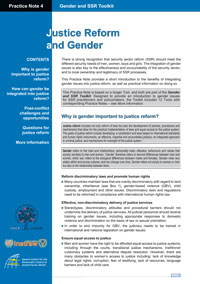

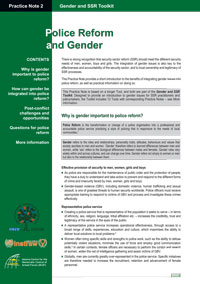
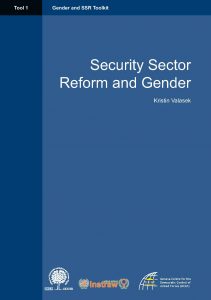
This Toolkit is an initial response to the need for information and analysis on gender and SSR. It is designed to provide policymakers and practitioners with a practical introduction to why gender issues are important in SSR and what can be done to integrate them. Each SSR context is unique. As such, the strategies and recommendations provided in the Toolkit may not always be directly applicable and should always be adapted to the local context.
Also see, SSR and Gender Toolkit: Practice Notes
For individual Tools and Practice Notes see here.
For more information please
download the document Eng
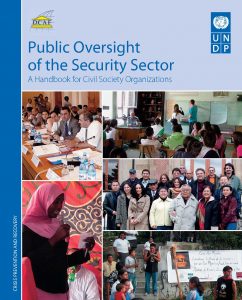
This Handbook provides structured guidance for civil society organisations (CSOs) on the role they can play in democratic security sector oversight. Although many CSOs have facilitated security sector reform processes in transition and post-conflict states, much of their potential remains untapped. Similarly, the longer term role CSOs play in maintaining a democratically-managed security sector is sometimes under-emphasised in the developed and developing worlds. The Handbook is designed primarily for civil society and non-governmental organisations. It is also relevant to democratic institutions, democratic representatives, policymakers, SSR practitioners, researchers, security sector institutions, the media, and international organisations partnering with CSOs on democratic security governance issues.
For more information please
download the document Eng

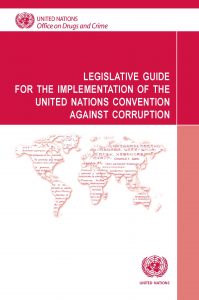
The United Nations Convention against Corruption was adopted by the General Assembly by its resolution 58/4 of 31 October 2003. The objective of the present practical legislative guide is to assist States seeking to ratify and implement the Convention by identifying legislative requirements, issues arising from those requirements and various options available to States as they develop and draft the necessary legislation.
For more information please
download the document Eng
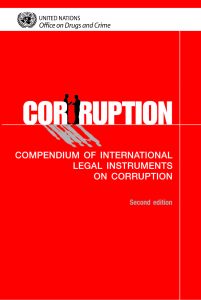
The Compendium of International Legal Instruments on Corruption compiles for reference all the major relevant global and regional international treaties, agreements, resolutions and other instruments. These include legally binding obligations, as well as some "soft-law" or normative instruments intended to serve as non-binding standards.
For more information please
download the document Eng
Page 7 of 8




